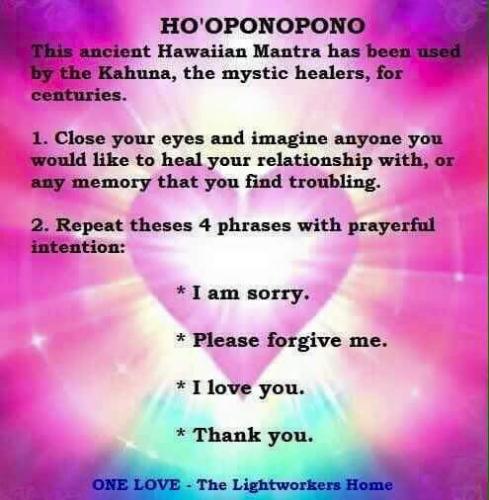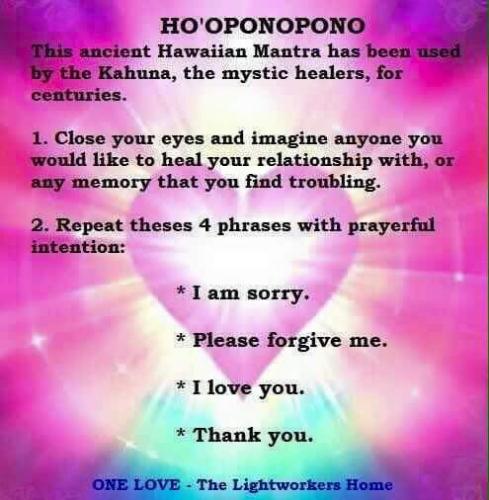So, you’re curious about how Ho’oponopono views the concept of responsibility? Well, the practice of Ho’oponopono has a unique perspective when it comes to responsibility. In Ho’oponopono, responsibility is seen as an inherent part of personal growth and healing.
Ho’oponopono teaches that we are responsible for our own experiences and the impact we have on others. It emphasizes the idea that we create our own reality and that taking responsibility for our thoughts, actions, and emotions is essential for self-improvement. This practice encourages individuals to acknowledge their role in any situation and to strive for healing and reconciliation. By accepting responsibility, we can actively work towards resolving conflicts and restoring harmony in our relationships and within ourselves. In Ho’oponopono, the concept of responsibility serves as a catalyst for positive change and spiritual growth.

Introduction
Ho’oponopono is a traditional Hawaiian practice that emphasizes the importance of responsibility in all aspects of life. This ancient healing technique, which means “to make right” or “to correct,” offers a unique perspective on personal growth and interpersonal relationships. In Ho’oponopono, responsibility is seen as a fundamental aspect of self-identity and self-healing, as well as a key factor in maintaining harmonious relationships and supporting the well-being of the community. By understanding the meaning and principles of Ho’oponopono, individuals can embrace responsibility as a transformative practice in their everyday lives.
Understanding Ho’oponopono
Meaning and origins of Ho’oponopono
Ho’oponopono has its roots in ancient Hawaiian culture and is deeply intertwined with the spiritual beliefs and practices of the indigenous people. The word itself can be broken down into two components: “ho’o,” which means to make, and “ponopono,” which signifies rightness or correctness. Together, they convey the concept of making things right or correcting imbalances in one’s life.
Historically, Ho’oponopono was used as a method of conflict resolution within families or communities. It involved a group gathering facilitated by a respected elder or spiritual leader, who guided the participants in a process of reconciliation and forgiveness. This process aimed to restore harmony and strengthen the bonds between individuals.
Beliefs and principles of Ho’oponopono
At its core, Ho’oponopono is built on the belief that we are responsible for everything that shows up in our lives. It teaches that each person is connected to everything around them, and that our thoughts, actions, and intentions have a profound impact on our well-being and the world we create.
One of the key principles of Ho’oponopono is the recognition of personal responsibility. Rather than placing blame on external factors, Ho’oponopono encourages individuals to take ownership of their actions, thoughts, and emotions. By doing so, they assume an active role in shaping their own experiences and addressing any disharmony or imbalance in their lives.
The Concept of Responsibility in Ho’oponopono
Responsibility as a fundamental aspect
In Ho’oponopono, responsibility is seen as a fundamental aspect of one’s existence. It implies the acknowledgment of our interconnectedness with all living beings and the world around us. By understanding and accepting our responsibility, we gain the power to make positive changes within ourselves and in our relationships.
Taking responsibility for one’s actions
Ho’oponopono emphasizes the importance of taking responsibility for one’s actions. This involves acknowledging the consequences of our choices and behaviors, both positive and negative. By recognizing the impact we have on others and the world, we can make conscious decisions that align with our intentions and values.
Understanding personal responsibility
Ho’oponopono encourages individuals to delve deep into their own sense of personal responsibility. This means examining our thoughts, beliefs, and emotions with honesty and self-reflection. By understanding the root causes of our actions and reactions, we can take responsibility for our own healing and growth.
The connection between responsibility and healing
In Ho’oponopono, responsibility is viewed as a catalyst for healing. By taking responsibility for our thoughts and emotions, we can address the patterns and traumas that may be holding us back. This practice of self-healing through responsibility leads to a greater sense of empowerment and personal transformation.
Self-Identity and Responsibility
Ho’oponopono’s perspective on self-identity
Ho’oponopono recognizes that our self-identity is shaped by our thoughts, beliefs, and experiences. It teaches that by understanding and accepting our responsibility, we can take control of our self-identity and shape it in alignment with our true essence.
Recognizing the role of responsibility in self-identity
Taking responsibility for our thoughts and actions allows us to recognize the influence we have on our self-identity. By being aware of our responsibility, we can consciously choose thoughts and behaviors that support our growth and well-being.
Using responsibility to shape self-identity
Ho’oponopono encourages individuals to use responsibility to consciously shape their self-identity. By taking ownership of our thoughts and actions, we can let go of limiting beliefs and patterns that no longer serve us. This process allows us to embrace our true essence and create a more fulfilling and authentic life.
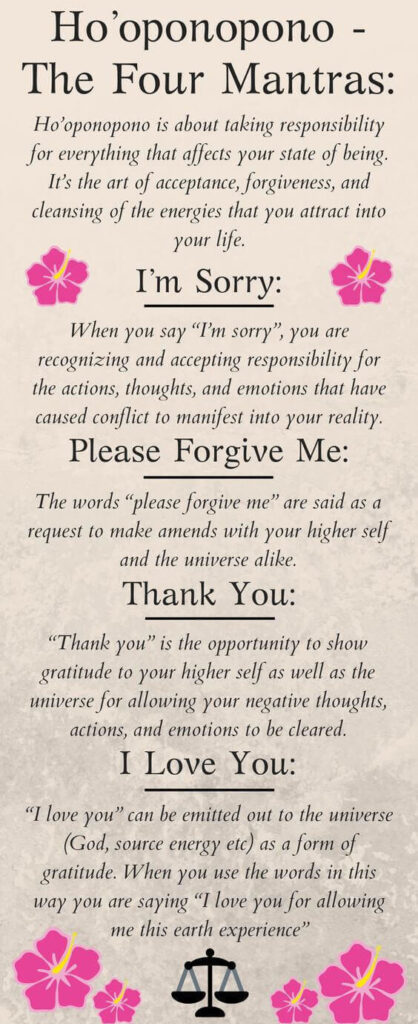
Responsibility in Self-Healing
Ho’oponopono’s approach to self-healing
Ho’oponopono places a strong emphasis on self-healing through responsibility. It teaches that the root of many physical, emotional, and spiritual imbalances lies within ourselves, and that true healing comes from taking ownership of our experiences and emotions.
Taking responsibility for personal healing
In Ho’oponopono, taking responsibility for personal healing involves acknowledging that we are the creators of our own reality. By accepting responsibility for our experiences and the emotions they evoke, we can begin to release past traumas and negative patterns. This process opens the door to healing and transformation.
Clearing personal obstacles through responsibility
By embracing responsibility, individuals can clear personal obstacles that may be hindering their growth and well-being. By taking ownership of our thoughts, emotions, and actions, we can release the energetic blockages that hold us back. This practice allows us to move forward with clarity and a renewed sense of purpose.
The Role of Responsibility in Relationships
Interpersonal relationships in Ho’oponopono
Ho’oponopono recognizes the significance of relationships in our lives and the impact they have on our well-being. It emphasizes the importance of taking responsibility for our part in every relationship, whether it be with partners, family, friends, or colleagues.
Resolving conflicts through shared responsibility
In Ho’oponopono, conflicts can be resolved through shared responsibility. Individuals are encouraged to examine their role in any relationship discord and take accountability for their actions and reactions. This process fosters open communication, understanding, and ultimately, resolution.
Promoting harmony and understanding
By embracing responsibility in relationships, individuals can promote harmony and understanding. When we take ownership of our thoughts and behaviors, we create a safe and supportive space for authentic communication and connection. This allows relationships to thrive and grow.
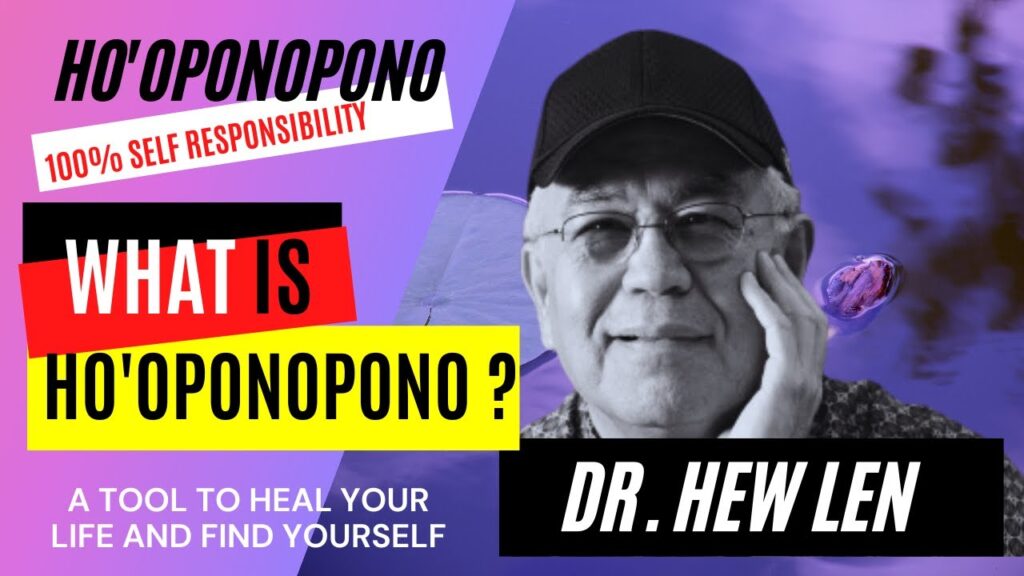
Cultural and Community Responsibility
Extending responsibility beyond the individual
Ho’oponopono recognizes that responsibility extends beyond the individual and encompasses the collective. It encourages individuals to recognize their responsibility towards their cultural heritage, the environment, and the well-being of the wider community.
The importance of collective responsibility
In Ho’oponopono, collective responsibility is seen as vital for the health and well-being of society. By embracing our responsibility towards others, we can contribute to the greater good and create a sense of unity and interconnection.
Supporting the well-being of the community
By assuming responsibility for the well-being of the community, individuals can actively contribute to its growth and harmony. This involves acts of service, compassion, and recognizing the impact our actions have on others. Ho’oponopono teaches that when we take care of the collective, we also take care of ourselves.
The Practice of Responsibility in Ho’oponopono
Incorporating responsibility into daily life
Ho’oponopono encourages individuals to incorporate responsibility into their daily lives. This means being mindful of our thoughts, words, and actions, and taking the necessary steps to align them with our intentions and values.
Rituals and techniques for embracing responsibility
Ho’oponopono offers various rituals and techniques that can help individuals embrace responsibility. These may include meditation, forgiveness practices, visualization, and journaling. These techniques provide a framework for self-reflection and self-improvement.
Developing a mindful responsibility practice
A mindful responsibility practice involves being aware of our thoughts, emotions, and actions in each present moment. By cultivating this awareness, we can consciously choose responsible behaviors and responses that contribute to our own growth and the well-being of others.
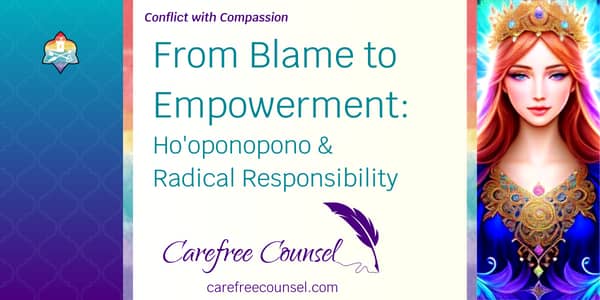
Challenges and Misinterpretations of Responsibility in Ho’oponopono
Potential misunderstandings of responsibility
One challenge in practicing responsibility in Ho’oponopono is the potential for misunderstandings. Responsibility can be misinterpreted as blame or guilt, leading to a negative perception of the practice. However, Ho’oponopono emphasizes that responsibility is not about blame, but rather about recognizing our power to make positive changes in our lives.
Addressing challenges in applying responsibility
Another challenge lies in applying responsibility to difficult situations or relationships. It can be challenging to take ownership of our part in conflicts or accept responsibility for past hurts. However, this process is essential for growth and resolution, and Ho’oponopono offers guidance and support in facing these challenges.
Cultivating a balanced perspective
Cultivating a balanced perspective is key to embracing responsibility in Ho’oponopono. It involves recognizing that while we are responsible for our own experiences, we cannot control everything that happens. By finding the balance between personal responsibility and surrendering to the greater flow of life, we can navigate challenges with grace and wisdom.
Conclusion
Ho’oponopono offers a profound understanding of responsibility and its transformative power. By embracing responsibility in our lives, we can experience personal growth, healing, and harmonious relationships. Through the practice of responsibility, we not only contribute to our own well-being but also create a positive impact on the world around us. As we integrate the principles of Ho’oponopono into our daily lives, we can cultivate a sense of interconnectedness, compassion, and empowerment, leading to a more fulfilled and purposeful existence.
